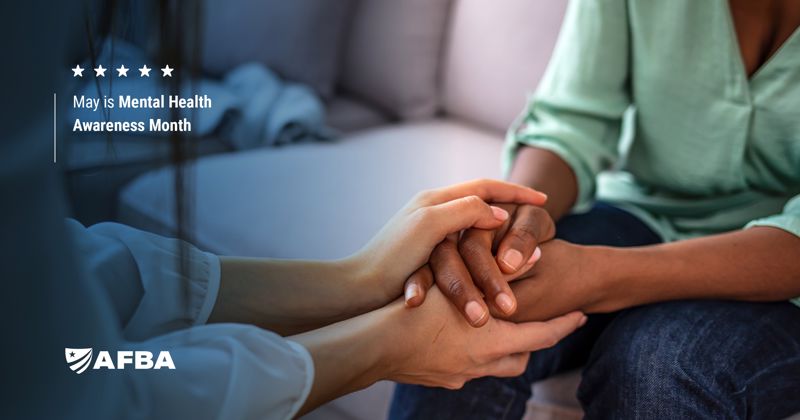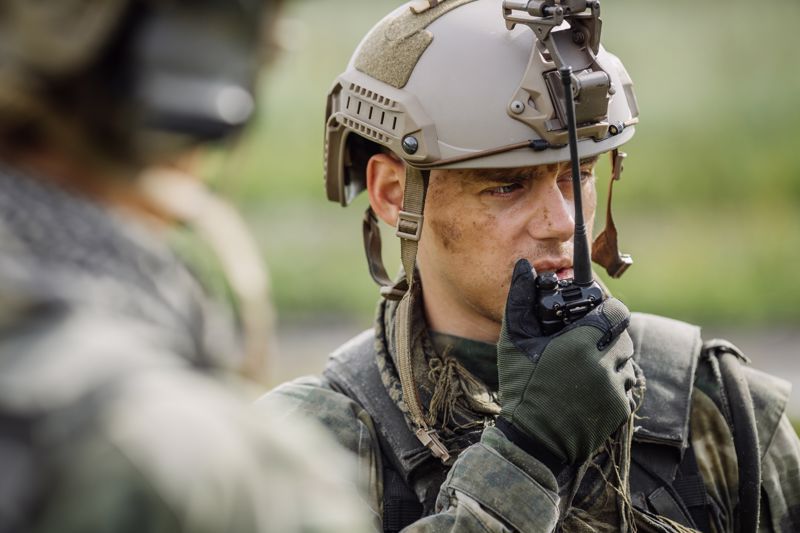There is still a strong stigma attached to mental health. Mental Health Awareness Month is the perfect time to help shatter that perception and inspire those who need it to seek out help.
One group that experiences increased rates of psychiatric illness are first responders and armed forces servicemembers, especially those who were in combat. Too many suffer in silence, though they don’t have to, as there are many programs available specifically for veterans and first responders alike. Operation Resiliency is one such example that aims to help servicemembers deal with mental health issues by encouraging interaction between soldiers who share bonds forged through combat in the military.
 “The appearance of the U.S. Department of Defense (DoD) visual information does not imply or constitute DoD endorsement.”
“The appearance of the U.S. Department of Defense (DoD) visual information does not imply or constitute DoD endorsement.”Operation Resiliency
The underlying concept behind Operation Resiliency is that soldiers who form bonds in combat can help each other cope with trauma. Operation Resiliency hopes to assist both active duty and veteran service members better manage their mental health by bringing them together with no-cost retreats close to their homes. They also follow up with these individuals in an effort to keep connections strong among these soldiers.
Since the end of 2022, Operation Resiliency has served 468 service members. The project aims to hold six more retreats throughout 2023.
The origin of Operation Resiliency
The concept for Operation Resiliency came from Sarah Verardo, whose husband, Mike, was badly wounded in Afghanistan.
Verardo served in Bravo Company, 2nd Battalion, 508th Parachute Infantry Regiment of the 82nd Airborne Division. This unit fought in the especially deadly Arghandab region in Afghanistan, where nearly half of the soldiers in the team were awarded Purple Hearts. When several of these infantrymen committed suicide, Sarah called retired Army Command Sgt. Maj. Donald McAlister, first sergeant for Bravo Company in the Arghandab. They conceived of Operation Resiliency as part of their joint belief that they should do their part to prevent further tragedy.
McAlister led the first retreat for veterans in Bravo Company in North Carolina, where nearly 100 veterans of the company showed up. He believed he should lead them with full transparency of his own difficult reality to encourage others to do the same. “…Leading by example was being open and honest, and letting them know that mentally, physically, I’ll never be the man I was before…But at the end of the day, that’s OK…I told them, ‘You know, it’s OK for us all to not be OK, as long as we, as long as we acknowledge it. We can see the enemy, see what’s coming at us,” said McAllister, according to a report by the U.S. Department of Defense.
Psychiatric illnesses are not a sign of weakness
One in five adults suffers from mental illness, as claimed by the National Institute of Mental Health. This statistic is the same for first responders and those who serve in the armed forces. No one — no matter how tough the person may be — is immune, and no one can “power through” psychiatric disorder through sheer force of will any more than they can a broken leg.
If you’re experiencing a crisis or if you feel you may hurt yourself or others, you can dial 988, which connects you to the Suicide and Crisis Lifeline. Calling 911 is also an option.
Bravo Company is an example of the strongest among us recognizing their experiences and reaching out to their combat brothers for relief. Programs such as Operation Resiliency give these soldiers hope — which is what they require most in their time of need.

